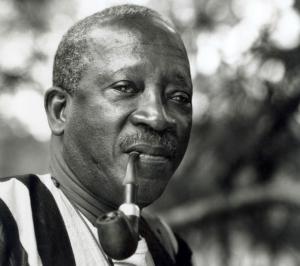
Ousmane Sembene Net Worth is
 $600,000
$600,000
Mini Biography

The first film movie director from an African country to attain international recognition, Ousmane Sembene remains the main figure in the rise of an unbiased post-colonial African cinema. Sembene’s root base weren’t, as may be anticipated, in the informed élite. After functioning being a mechanic and bricklayer, he became a member of the Free of charge French pushes in 1942, portion in Africa and France. In 1946, he came back to Dakar, where he participated in the fantastic railway hit of 1947. Another year he came back to France, where he proved helpful within a Citröen stock in Paris, and, for a decade, in the dock in Marseilles. During this time period Sembene became extremely energetic in trade union problems and started an extraordinarily effective writing profession. His first book, “Le Docker Noir”, was released in 1956 to important acclaim. Since that time, he has created several works that have positioned him in the foreground from the worldwide literary picture. Long a devoted filmgoer, Sembene became conscious that to attain a mass market of employees and preliterate Africans outside metropolitan centers, movie theater was a far more effective automobile than the created phrase. In 1961, he journeyed to Moscow to review film at VGIK and to just work at the Gorky Studios. Upon his go back to Senegal, Sembene changed his focus on filmmaking and, after two brief films, he composed and aimed his initial feature, Black Female (1966)(english name: Black Female). Received with great passion at several worldwide film festivals, in addition, it won the exclusive Jean Vigo Reward for its movie director. Shot in a straightforward, quasi-documentary style most likely influenced from the French New Influx, BLACK Woman tells the tragic tale of a Senegalese woman operating like a maid for an affluent French family members within the Riviera, concentrating on her feeling of isolation and developing despair. Her nation might have been “decolonized,” but she actually is still a colonial — a nonperson in the colonizers’ globe. Sembene’s following film, Mandabi (1968) (english name: THE AMOUNT OF MONEY Order), designated a razor-sharp departure. Predicated on his book from the same name and shot in color in two vocabulary versions–French and Wolof, the primary dialect of Senegal–THE Cash ORDER is definitely a trenchant and frequently delightfully witty satire of the brand new bourgeoisie, torn between outmoded patriarchal customs and an uncaring, rapacious and inefficient bureaucracy. Emitaï (1971) information the struggle from the Diola folks of the Casamance area of Senegal (where Sembene was raised) against the French government bodies during WWII. Shot in Diola dialect and French from a genuine script, EMITAI gives a respectful but unromanticized depiction of a historical tribal tradition, while highlighting the part of ladies in the struggle against colonialist oppression. In Xala (1975), Sembene once again assumes the indigenous bourgeoisie, this time around in the individual of a wealthy, partly Westernized Moslem businessman suffering from “xala” (impotence) on the night time of his wedding ceremony to a very much more youthful third wife. Ceddo (1977), regarded as by many to become Sembene’s masterpiece, departs from your director’s customary realist strategy, documenting the struggle during the last generations of the unspecified African culture against the incursions of Islam and Western colonialism. Having a solid female central personality, CEDDO is a robust evocation from the African experience.
Known for movies




